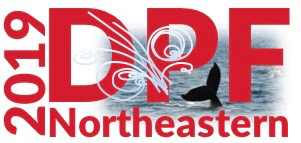Speaker
Description
Noble liquid detectors have become an attractive option for exploring physics beyond the standard model. Current experiments are using these detectors to search for dark matter interactions, neutrinoless double beta decay, and other phenomena. Improved energy resolution can be leveraged from an optimized combination of two detection channels: ionization and scintillation. Experimentally, a microscopic anti-correlation behavior between these signals has been observed, but it has not been described from first principles. Making measurements in a third channel would provide useful information about the microscopic anti-correlation phenomenon. Work is currently underway at Drexel University to develop solid argon and xenon bolometers, which would be able to utilize a heat channel in addition to ionization and scintillation. Present efforts are aimed at developing a method for growing small noble solid samples via vapor deposition onto a substrate over a wide range of temperatures down to 10 K. Understanding the sample growth is the first step to develop techniques for integrating detector components to measure ionization and scintillation signals. This will allow for improved characterization of noble solids as detector media. In the future, efforts will be focused on the growth of these detectors in the Drexel dilution refrigerator, where samples can be cooled to 20 mK to include bolometric measurements for the simultaneous readout of the three detection channels.




